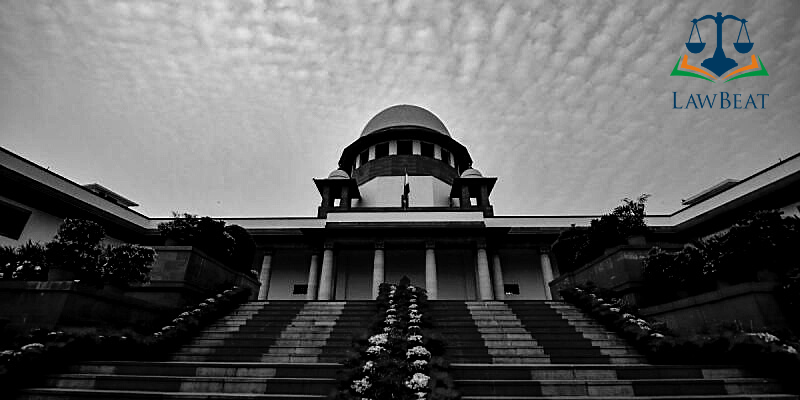Check Bounce Cases: Supreme Court Issues Guidelines For Expediting Disposal; Asks Centre To Make Suitable Amendments

Constitutional Bench of Chief Justice SA Bobde, Justice L. Nageswara Rao, Justice B.R. Gavai, Justice A.S. Bopanna and Justice S. Ravindra Bhat delivered its judgment today on a suo-motu PIL concerning speedy disposal of cases under the NI Act, 1881.
Referring Para 24 of the Judgment, the bench through Chief Justice Bobde observed,
1) The High Courts are requested to issue practice directions to the Magistrates to record reasons before converting trial of complaints under Section 138 of the Act from summary trial to summons trial.
2) Inquiry shall be conducted on receipt of complaints under Section 138 of the Act to arrive at sufficient grounds to proceed against the accused, when such accused resides beyond the territorial jurisdiction of the court.
3) For the conduct of inquiry under Section 202 of the Code, evidence of witnesses on behalf of the complainant shall be permitted to be taken on affidavit. In suitable cases, the Magistrate can restrict the inquiry to examination of documents without insisting for examination of witnesses.
4) We recommend that suitable amendments be made to the Act for provision of one trial against a person for multiple offences under Section 138 of the Act committed within a period of 12 months, notwithstanding the restriction in Section 219 of the Code.
5) The High Courts are requested to issue practice directions to the Trial Courts to treat service of summons in one complaint under Section 138 forming part of a transaction, as deemed service in respect of all the complaints filed before the same court relating to dishonour of cheques issued as part of the said transaction.
6) Judgments of this Court in Adalat Prasad (supra) and Subramanium Sethuraman (supra) have interpreted the law correctly and we reiterate that there is no inherent power of Trial Courts to review or recall the issue of summons. This does not affect the power of the Trial Court under Section 322 of the Code to revisit the order of issue of process in case it is brought to the court’s notice that it lacks jurisdiction to try the complaint.
7) Section 258 of the Code is not applicable to complaints under Section 138 of the Act and findings to the contrary in Meters and Instruments (supra) do not lay down correct law. To conclusively deal with this aspect, amendment to the Act empowering the Trial Courts to reconsider/recall summons in respect of complaints under Section 138 shall be considered by the Committee constituted by an order of this Court dated 10.03.2021.
8) All other points, which have been raised by the Amici Curiae in their preliminary report and written submissions and not considered herein, shall be the subject matter of deliberation by the aforementioned Committee. Any other issue relating to expeditious disposal of complaints under Section 138 of the Act shall also be considered by the Committee.
Matter has been listed after 8 weeks, before a 3-Judge bench.
The matter originated from a direction issued in this behalf in Makwana Mangaldas Tulsidas v. State of Gujarat, SLP (Crl.) No. 5464 of 201, by a Division Bench of Chief Justice SA Bobde and Justice Nageswara Rao, vide judgment dated March 5, 2020.
Senior Advocate Siddharth Luthra and Advocate K Parameshwar were appointed as Amicus Curiae in this matter.
Seven major issues were identified by the Learned Amicus; a) Service of Summons b) Statutory amendment to Section 219 of the Code c) Summary trials d) Attachment of bank accounts e) Applicability of Section 202 of the Code f) Mediation g) Inherent jurisdiction of the Magistrate
On March 3, 2021, Supreme Court Bench of Chief Justice SA Bobde, Justice L. Nageswara Rao and Justice S. Ravindra Bhat had suggested the Union to provide for establishment of additional courts for offences under the Negotiable Instruments Act, 1881, exercising powers under Article 247 of the Constitution.
“There is no doubt or dispute about the fact that matters under the N.I. Act has posed what by now has become an intractable problem/accounting for close to 30 to 40 per cent of the pendency in the trial courts and a very high percentage in the High Courts also”, the Bench remarked.
On the last date of hearing March 10, 2021, Learned Solicitor General, Mr. Tushar Mehta had submitted that the Union of India accepts the need, and was committed to the establishment of such additional courts exercising powers under Article 247, after working out the modalities.
Court had directed to form a Committee to consider all suggestions at the Bar and submit a report within 3 months, specifying steps to facilitate early disposal of the cases under the Negotiable Instruments Act.
Directions were also issued to take into account the pendency of NI cases in each State, to determine the exact number of Additional Courts needed.
Case Title: In Re Expeditious Trial of Cases under Section 138 OF N.I. ACT 1881| SMW (Crl) 2/2020
